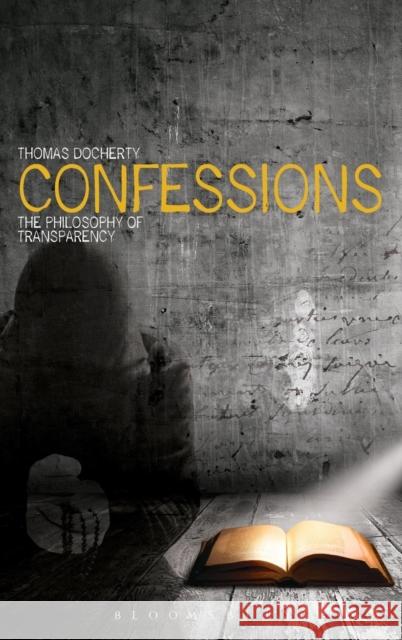Confessions: The Philosophy of Transparency » książka
Confessions: The Philosophy of Transparency
ISBN-13: 9781849666596 / Angielski / Twarda / 2012 / 224 str.
Confessions: The Philosophy of Transparency
ISBN-13: 9781849666596 / Angielski / Twarda / 2012 / 224 str.
(netto: 491,00 VAT: 5%)
Najniższa cena z 30 dni: 495,76
ok. 30 dni roboczych.
Darmowa dostawa!
This book explores what is at stake in our confessional culture. Thomas Docherty examines confessional writings from Augustine to Montaigne and from Sylvia Plath to Derrida, arguing that through all this work runs a philosophical substratum - the conditions under which it is possible to assert a confessional mode - that needs exploration and explication.
Docherty outlines a philosophy of confession that has pertinence for a contemporary political culture based on the notion of 'transparency'. In a postmodern 'transparent society', the self coincides with its self-representations. Such a position is central to the idea of authenticity and truth-telling in confessional writing: it is the basis of saying, truthfully, 'here I take my stand'.
The question is: what other consequences might there be of an assumption of the primacy of transparency? Two areas are examined in detail: the religious and the judicial. Docherty shows that despite the tendency to regard transparency as a general social and ethical good, our contemporary culture of transparency has engendered a society in which autonomy (or the very authority of the subject that proclaims 'I confess') is grounded in guilt, reparation and victimhood.











